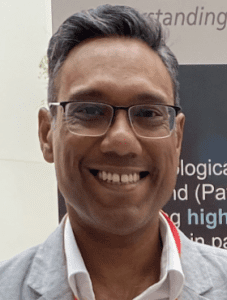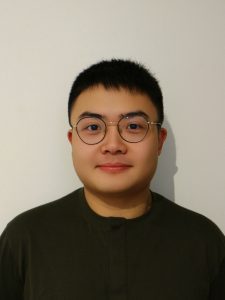
Dr Nischalan Pillay
University College London
Awarded: £60,000
Funded by the Sarah Burkeman Trust
The challenge
As part of a wider project to understand how sarcoma develops, behaves, and how best to treat it, Dr Nischalan Pillay and his team are looking closely at the DNA of the cancer cells. This process is called whole genome sequencing (WGS). It can give vital clues about which treatments might work best for someone, and whether there are increased risks for an individual’s family members.
However, many sarcomas have unusual and complicated changes in their DNA, which can be more challenging to identify using standard methods. Newer improved technology called long-read sequencing is now available, but it requires the samples to be handled very carefully to preserve the DNA.
How will this project tackle this challenge?
 This grant will support Runtian (Leo) Lin, a dedicated research technician to join the project team who will help process tissue and blood samples from people with sarcoma. These samples will be used for both whole genome and long-read sequencing and liquid biopsy research, which will look for DNA from tumour cells in the blood.
This grant will support Runtian (Leo) Lin, a dedicated research technician to join the project team who will help process tissue and blood samples from people with sarcoma. These samples will be used for both whole genome and long-read sequencing and liquid biopsy research, which will look for DNA from tumour cells in the blood.
This is part of a larger six-year project funded by Cancer Research UK. The technician will join a group of expert scientists, doctors, and a clinical PhD student all working to identify mutations in sarcomas. The liquid biopsy tool will also be investigated as a monitoring tool to see if there is potential to improve early detection of tumours. The research technician will also help coordinate between the hospital to obtain samples and the university where the research takes place.
What this means for people affected by sarcoma
This research will help to better understand how sarcomas form and change and could lead to earlier and more accurate diagnosis in the future. It could also help find the best treatments for each person and monitor how well they are working, potentially even spotting cancer earlier than a scan.









